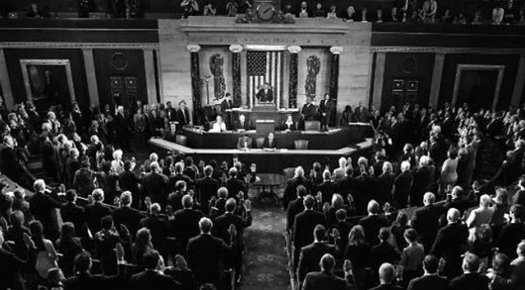
 Little has changed regarding the religious composition of the new Congress, especially when it comes to the participation of open atheists.
Little has changed regarding the religious composition of the new Congress, especially when it comes to the participation of open atheists.
Among members of the new 115th Congress, 91% describe themselves as Christians, according to a new analysis by Pew Research Center. It is not much different from the religious demographics in 87th Congress (1961 to 1962, the earliest years for which comparable data are available) when the result was 95% Christians.
The analysis finds that some religious groups, including Protestants, Catholics and Jews, have greater representation in Congress than in the general population. Jews, for example, make up 2% of the U.S. adult population but account for 6% of Congress.
The most notably underrepresented group is the religiously unaffiliated also known as religious “nones”. This group now accounts for 23% of the general public but just 0.2% of Congress. Kyrsten Sinema of Arizona is the only member who describes herself as religiously unaffiliated but when asked if she was an atheist when she was first elected to Congress in 2012, her spokesperson dismissed the label by saying, “Kyrsten believes the terms non-theist, atheist or nonbeliever are not befitting of her life’s work or personal character.”

The eye-catching lack of participation of open atheists in the new Congress raises many questions, such as – Are there some members of Congress who are in the closet about their non-religiosity? Why atheists are not suitable for the legislature of the federal government? What would change if the “nones” have a greater representation in the Congress?
It’s not easy to answer that entire question but one thing is clear – maybe nothing much would change in American politics but having an open atheist in public office would at least go a long way in decreasing the anti-atheist stigma that exists in our society.
Photo Credits: The Hill
